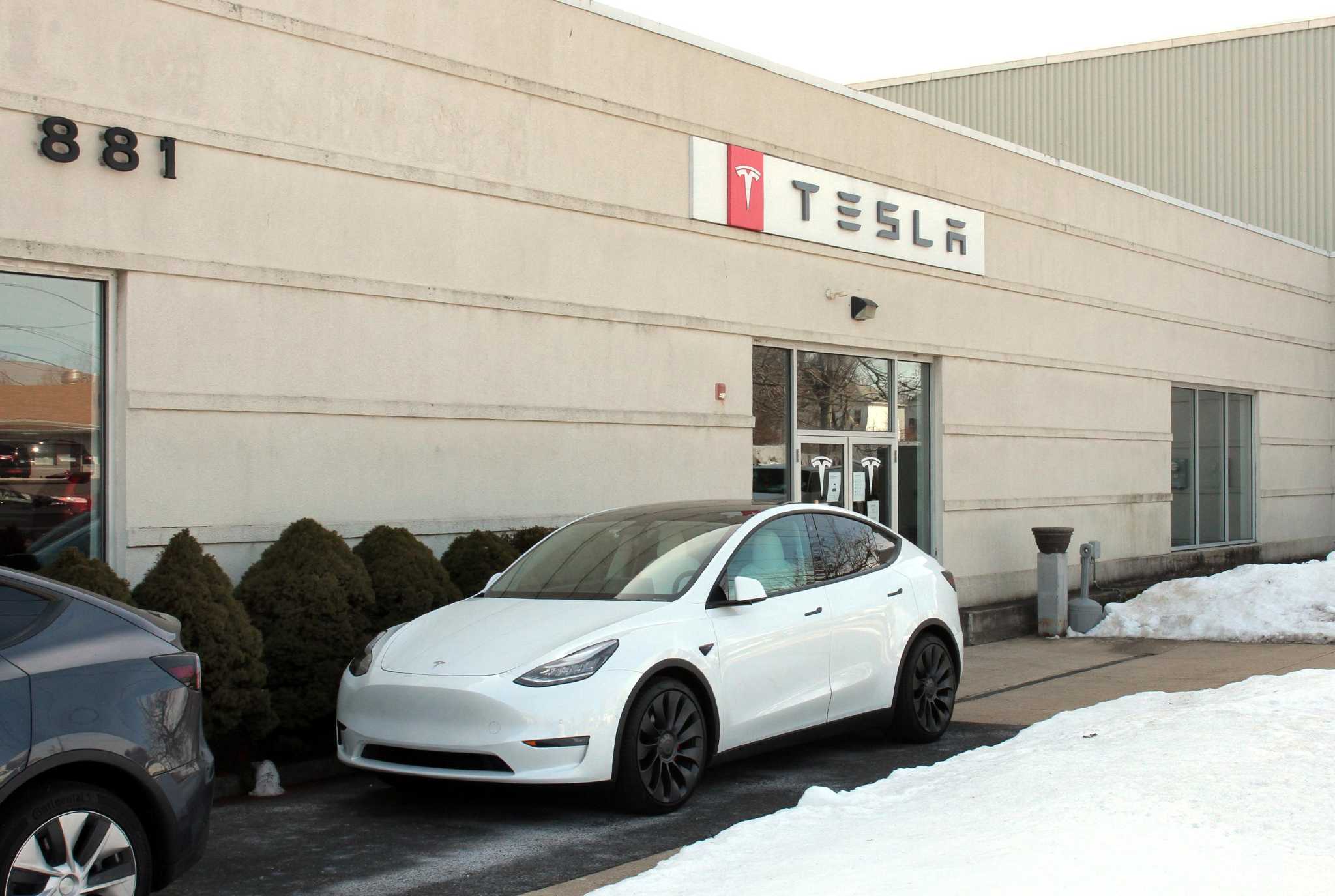Auto Dealers Intensify Fight Against Electric Vehicle Regulations

Table of Contents
Financial Concerns Fueling Dealer Opposition
The transition to an EV-centric market presents significant financial hurdles for auto dealers, many of whom are expressing vehement opposition to the speed and stringency of the regulations.
High Upfront Investment Costs for EV Infrastructure
Adapting to the EV market requires substantial upfront investment. Dealers must invest heavily in new infrastructure to support electric vehicles. This includes:
- Charging Station Installation: The cost of installing fast-charging stations can range from several thousand to tens of thousands of dollars per unit, depending on the power capacity and number of charging points.
- Specialized Tools and Equipment: Servicing EVs necessitates specialized tools and diagnostic equipment, which can be expensive to acquire and maintain.
- Employee Training and Certification: Technicians require extensive training to safely handle high-voltage systems and EV-specific components, adding significant training costs.
These investments place a considerable burden on smaller dealerships, potentially threatening their profitability and even their viability. The financial strain is particularly acute for those already operating on tight margins.
Uncertain EV Market Demand and Profit Margins
The EV market, while growing rapidly, remains volatile. Dealers are concerned about lower profit margins on EVs compared to gasoline-powered vehicles. The lower maintenance requirements of EVs directly impact the revenue streams traditionally associated with servicing internal combustion engine (ICE) vehicles. This uncertainty fuels hesitancy in making significant investments in EV infrastructure. Data on EV sales growth projections, while positive, often doesn't fully reflect the complexities faced by dealerships on the ground. Many are concerned about over-investing in a market whose long-term demand is still somewhat unpredictable.
Challenges in Servicing and Repairing EVs
Servicing EVs presents unique challenges. The high-voltage systems and sophisticated battery technology require specialized knowledge and tools, often different from those used for traditional vehicles. This leads to:
- Higher Warranty Costs: The complexity of EV repairs can lead to higher warranty claims and associated costs for dealerships.
- Longer Repair Times: Diagnosing and repairing EV components often takes longer than with ICE vehicles, impacting workshop efficiency.
- Limited Parts Availability: In some regions, the availability of replacement parts for EVs can be limited, causing delays in repairs and potentially frustrating customers.
Regulatory Hurdles and Compliance Costs
Beyond the financial concerns, auto dealers are also grappling with the complexities and costs associated with complying with increasingly stringent EV regulations.
Complexity of Meeting Stringent Emission Standards
Navigating the maze of ever-changing EV regulations across different jurisdictions is a significant challenge. Dealers must comply with a range of mandates, including:
- Emissions Standards: Meeting increasingly stringent emissions targets requires substantial changes to inventory and sales strategies.
- Charging Station Mandates: Some jurisdictions are mandating the installation of charging stations at dealerships, adding to the financial burden.
- Reporting and Documentation Requirements: Dealers face increased bureaucratic hurdles related to reporting and documenting their compliance with various regulations.
The administrative burden and associated compliance costs add to the financial pressures faced by auto dealers.
Lack of Government Support and Incentives for Dealers
Dealerships argue that insufficient government support and incentives hinder their ability to transition smoothly to the EV market. The lack of:
- Financial Assistance: Targeted financial aid and grants could help offset the upfront costs of EV infrastructure and training.
- Training Programs: Comprehensive training programs are crucial to equip technicians with the skills needed to service EVs effectively.
- Tax Breaks and Subsidies: Tax incentives could make investments in EV infrastructure more attractive to dealerships.
This absence of support exacerbates the financial challenges faced by dealers and slows the overall transition to EVs.
Concerns about Government Overreach and Market Interference
Some dealers argue that excessive government regulation stifles free-market competition and innovation within the automotive sector. They believe that:
- Overregulation inhibits consumer choice: An overly prescriptive regulatory environment could limit consumer choice and affordability.
- Government interference disrupts market forces: Unnecessary regulations can distort market signals and hinder the natural evolution of the automotive market.
This concern highlights the delicate balance between environmental protection and the principles of a free market.
The Future of Auto Dealerships in the EV Era
Despite the challenges, the future of auto dealerships in the EV era is not entirely bleak. Adaptation, collaboration, and technological advancements will play critical roles.
Adaptation Strategies: Embracing Change and Innovation
Forward-thinking dealerships are already adopting strategies to thrive in the evolving market:
- Partnerships with EV Manufacturers: Collaborating directly with EV manufacturers allows dealerships to secure support and training resources.
- Investments in Training Programs: Proactive investments in employee training ensure that dealerships have the expertise to service EVs effectively.
- Diversification of Services: Expanding service offerings beyond vehicle sales, such as maintenance and repair of EVs, provides new revenue streams.
These proactive measures demonstrate a commitment to adapting to the changing market landscape.
Collaboration and Negotiation with Regulators
Open communication and constructive dialogue between auto dealers and government agencies are essential to finding a mutually acceptable balance between environmental goals and market realities. Negotiating realistic timelines and exploring flexible regulatory frameworks can create a smoother transition.
The Role of Technology and Digitalization in the Transition
Technology plays a vital role in easing the transition to EVs:
- Online Sales Platforms: Online sales platforms can help dealerships reach a wider customer base and streamline the sales process.
- Remote Diagnostics: Remote diagnostic tools allow dealerships to diagnose and troubleshoot EV issues more efficiently.
Embracing technological advancements is crucial for maintaining competitiveness in the digital age.
Conclusion: Navigating the Shifting Landscape of Auto Sales
The concerns raised by auto dealers regarding electric vehicle regulations are significant and multifaceted. Financial pressures from infrastructure investments, uncertain market demand, and the complexities of EV servicing are substantial obstacles. Furthermore, the regulatory burden, coupled with a perceived lack of government support, adds to the challenges. However, the transition to electric vehicles is inevitable. Finding solutions requires collaboration and compromise between all stakeholders—dealers, manufacturers, and government regulators—to navigate this shifting landscape effectively and ensure a smooth transition to a sustainable automotive industry. To stay informed about the ongoing debate surrounding auto dealers intensify fight against electric vehicle regulations, explore resources from industry associations and governmental bodies focused on automotive and environmental policy.

Featured Posts
-
 Sinners A Louisiana Horror Film Coming Soon To Theaters
May 26, 2025
Sinners A Louisiana Horror Film Coming Soon To Theaters
May 26, 2025 -
 Hostage Release Agam Berger And Daniel Weiss March Of The Living Participation
May 26, 2025
Hostage Release Agam Berger And Daniel Weiss March Of The Living Participation
May 26, 2025 -
 Land Of Sometimes A Look At Tim Rices Lyrics For The Lion King
May 26, 2025
Land Of Sometimes A Look At Tim Rices Lyrics For The Lion King
May 26, 2025 -
 Hsv Aufstieg In Die Bundesliga Perfekt Euphorie In Hamburg
May 26, 2025
Hsv Aufstieg In Die Bundesliga Perfekt Euphorie In Hamburg
May 26, 2025 -
 David Hockney A Bigger Picture Key Themes And Artistic Innovations
May 26, 2025
David Hockney A Bigger Picture Key Themes And Artistic Innovations
May 26, 2025
Latest Posts
-
 Reaccion Inmediata Real Madrid Derrota Al Sevilla 0 2
May 29, 2025
Reaccion Inmediata Real Madrid Derrota Al Sevilla 0 2
May 29, 2025 -
 Analisis Del Real Madrid 3 2 Celta Vigo Tres Preguntas Y Respuestas
May 29, 2025
Analisis Del Real Madrid 3 2 Celta Vigo Tres Preguntas Y Respuestas
May 29, 2025 -
 Sevilla Vs Real Madrid 0 2 Resultado Y Reaccion Inmediata
May 29, 2025
Sevilla Vs Real Madrid 0 2 Resultado Y Reaccion Inmediata
May 29, 2025 -
 Game 5 Aftermath Bucks And Pacers Players Involved In Heated Confrontation
May 29, 2025
Game 5 Aftermath Bucks And Pacers Players Involved In Heated Confrontation
May 29, 2025 -
 Real Madrid Vs Celta Vigo 3 2 Tres Preguntas Cruciales Respondidas
May 29, 2025
Real Madrid Vs Celta Vigo 3 2 Tres Preguntas Cruciales Respondidas
May 29, 2025
